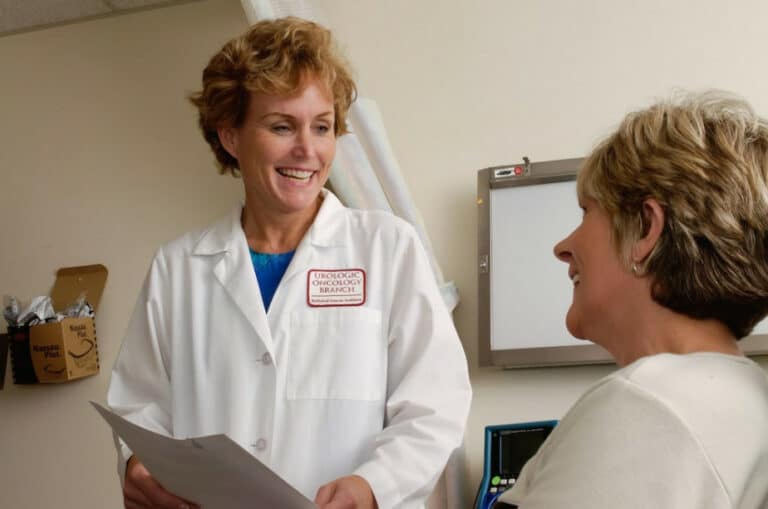Do you know that stepping into your doctor’s office regularly for a regular medical checkup could be one of the smartest health decisions you make? The goal is not only to obtain a clean bill of health but also to avoid potential problems.
Consider the tales of individuals who went for a routine check-up, only to discover that they were on the brink of a major health issue. Those stories aren’t rare. They underscore a critical aspect of healthcare: early detection can save lives.
You are going to find out about the various ways consistent check-ups can improve your overall well-being, and why waiting until symptoms appear is not a strategy to rely on.
What are Regular Medical Checkups?
Now, what does ‘regular’ mean in the context of check-ups? It’s not a one-size-fits-all answer. It varies depending on factors like age, health history, and lifestyle. For instance, if you have a family history of a particular condition, you might need to be screened more often than someone without that risk factor.
Typically, a regular medical checkup includes a review of your medical history and a series of tests and screenings tailored to your specific needs.
Similarly, children and older adults typically require a different check-up rhythm. I’m here to help you understand the importance of tailoring these health checks to your personal needs.
The Benefit of a Regular Medical Checkup
Regular medical checkup is more than just medical exams; they’re the compass that guides you toward optimal health. They help you track your body’s changes, understand your risk factors for diseases, and maintain a conversation with your healthcare provider about the best ways to stay healthy.
Regular health tests are crucial for maintaining overall well-being and early detection of potential issues. Here are some key tests that should be done regularly. Stay tuned, because next, we’re going to explore what happens during these check-ups and how you can best prepare for them.
What tests should be done regularly?
These 8 Basic Health Screening Tests should be done regularly by everyone:-
- Hemogram or Complete Blood Count (CBC)
- Lipid Profile
- Diabetes Panel
- Thyroid Panel
- Liver Panel
- Essential Nutrients
- Electrolytes Panel
- Bone Mineral Test (BMT)
These tests help in the early detection and prevention of many health issues, allowing for timely intervention and better health management. Always consult with your healthcare provider to determine the specific tests and frequency appropriate for your personal health needs.
Navigating the Check-Up Journey: What to Expect and How to Prepare
Understanding what happens during a regular medical checkup can demystify the process and make it less daunting.
Blood pressure checks, cholesterol screenings, and blood glucose tests are common for most adults. You may also undergo cancer screenings, bone density scans for osteoporosis, or immunizations, depending on your age and risk factors.
The scope of your check-up should be personalized. For instance, women may need mammograms and Pap smears, while men might have prostate exams.
Your family history and personal risk factors, like smoking or a high-fat diet, could necessitate additional tests. And don’t forget, regular medical checkup aren’t just about physical health; they should also include mental health screenings to assess for symptoms of depression, anxiety, or other mental health conditions.
To get the most out of your check-up, preparation is key. Make a list of any symptoms or concerns you have and be ready to discuss your current medications and lifestyle habits. If you have previous health records, bring them along.
Before your appointment, jot down any key life changes or stressors that could affect your health. This proactive approach ensures that you cover all bases and allows your healthcare provider to offer a comprehensive health evaluation.
Now that you know what to expect from a regular medical checkup and how to prepare for one, you’re better equipped to take an active role in your healthcare journey. Remember, being informed and prepared can make your visit more efficient and more fruitful.
And after your visit, acting on the information you’ve received is just as crucial. That’s what I’m going to walk you through in the next section—how to decode your check-up results and leverage them for better health.
Also See:- Tips on How To Improve Heart Health
Beyond the Exam Room: Taking Action After Your Regular Medical Checkup
I’m going to reveal something that might surprise you: the real work often starts after you leave the doctor’s office. This isn’t just about getting a clean bill of health, it’s also about what you do with the information you receive. Let’s decipher together what your check-up results mean.
You’re going to find out that sometimes, you might have to play detective with your health findings. Understanding your results is crucial, and it’s why having a good relationship with your healthcare provider matters. They can offer clarity and guidance on your next steps.
If your doctor has handed you a list of recommendations, don’t tuck it away in a drawer. Your action is required, whether it’s scheduling a follow-up test, starting a medication, or making a lifestyle change. I’m here to walk you through how to responsibly act on these suggestions and make them work for your life.
Lifestyle adjustments can be daunting, but they are often necessary components of acting on your check-up results. Choose something that resonates with you to make the transition smoother and more sustainable.
Lastly, maintaining ongoing communication with your healthcare provider is key. It ensures that you’re on track and allows for necessary adjustments along the way.
I firmly believe in the partnership approach to healthcare, and I want to emphasize the importance of this relationship in your overall health journey.
Frequently Asked Questions
1. How often should I schedule a regular medical checkup?
You should schedule a medical checkup every 5 Years
2. What should I expect during a routine checkup?
Some tests will be done such as regular physical exams, body mass index (BMI), skin checks, cholesterol and blood pressure screening, eye exams, immunizations, and screening for sexually transmitted diseases.
3. Are there specific tests I should request during my checkup?
Complete blood count(CBC) and lipid panel
Article You Might Like:-

